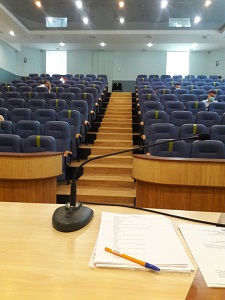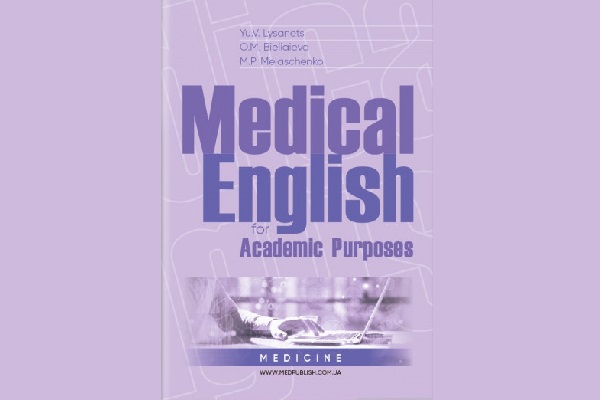The globalization of the labor market particularly in the healthcare field means that English fluency is really important for health care professionals.
In September, 2020 we administered entrance exams in English to those, who wanted to hold a PhD degree in medicine and pharmacy.

The applicants applying to programs taught in English must provide proof their of English proficiency as part of their applications. This ensures that they have the necessary English skills to understand academic writing, reading, listening and they have to communicate effectively with their examiners.
The English study program consists of 240 academic hours, 200 of which are focused on mastering English in class, and 40 hours for self-studying as well as our highly-skilled instructors’ work has found receptive audience at NMAPE.
The staff members train the advisees to a high professional standard, as our teachers keep track of any training activities, keep an eye on the global medical news and employ best practices in the educational environment. Although there are no lessons, the learners are all cramming for next month's tests.
 The principle goals of the curriculum are as follows: developing and improving monologue speech skills using functional vocabulary, in particular the medical one; developing and improving dialogue speech practices using functional vocabulary, in particular medical, and the learned grammatical constructions; enhancing communicative competencies necessary for effective speech communication in a professional medical environment, e.g. attending international conferences, congresses, workshops and meetings; optimizing reviewing, annotation skills, compiling resumes and analyzing medical texts.
The principle goals of the curriculum are as follows: developing and improving monologue speech skills using functional vocabulary, in particular the medical one; developing and improving dialogue speech practices using functional vocabulary, in particular medical, and the learned grammatical constructions; enhancing communicative competencies necessary for effective speech communication in a professional medical environment, e.g. attending international conferences, congresses, workshops and meetings; optimizing reviewing, annotation skills, compiling resumes and analyzing medical texts.
All the mentioned above greatly emphasizes learning English at the Department of Foreign Languages.



